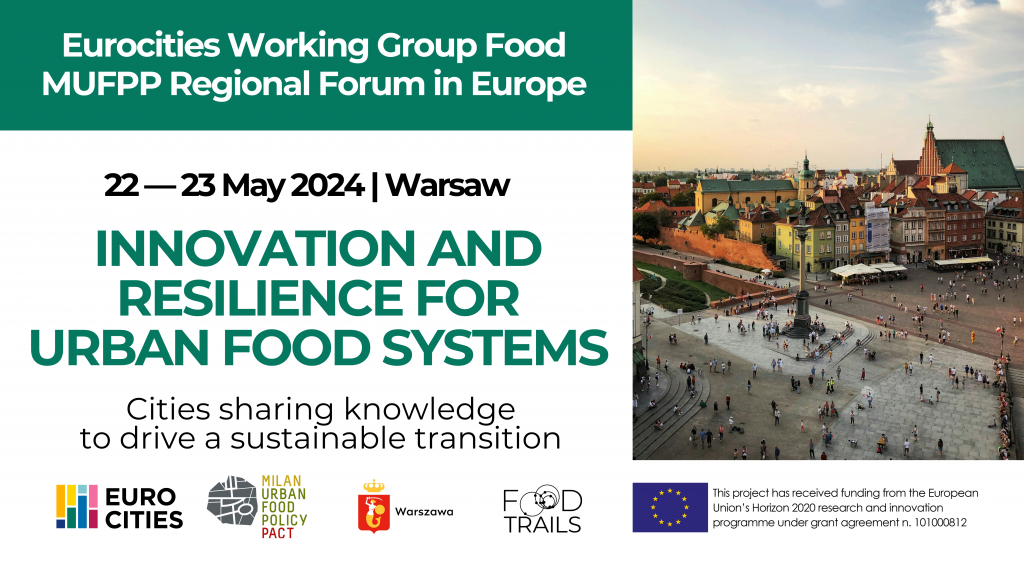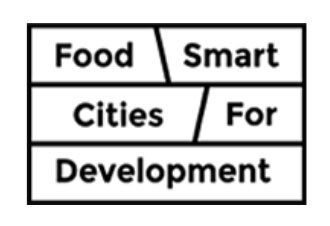On the 22nd and 23rd of May 2024, the MUFPP Regional Forum Europe & Eurocities Working Group Food meeting will be hosted in Warsaw.
The central theme will be the innovation of food systems in terms of sustainability and resilience. It will gather policymakers, officers, prominent stakeholders and researchers from European cities, and it will offer the opportunity to exchange and explore impactful solutions to the pressing challenges faced in Europe.

During Day 1 participants will reflect on challenges to innovate products and processes, and the engagement of different stakeholders, divided into workshop groups. After, some cities representatives will share their experiences on crisis response and approaches divided into groups to share. Finally, the delegates will take a guided walk in the Praga district of Warsaw, to meet local food-related initiative.
On Day 2 the workshop on Food Trails Replication will take place. It will include breakouts discussions around the Food Trails Replication methodology and how to shape fruitful exchanges. In the afternoon, the participants will take part in some site-visits of their choice.
You can register to the event at this link:
Registration link: https://www.eventbrite.be/e/innovation-and-resilience-for-urban-food-systems-cities-sharing-knowledge-tickets-865369372087?aff=oddtdtcreator




